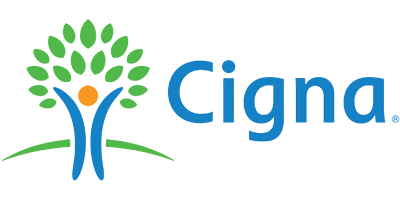Substance Use Disorder (SUD) is a complex condition that affects individuals differently, often rooted in personal experiences, traumas, and unique life circumstances. Recognizing this, Individual Counseling for Substance Use Disorder offers a personalized therapeutic approach, tailored to address the specific needs and challenges of each person. Unlike group therapies or generalized treatment plans, individual counseling delves deep into the personal narratives, providing a safe space for introspection, understanding, and healing. This one-on-one approach is a cornerstone in the comprehensive treatment of SUD, ensuring that each individual’s journey towards recovery is as unique as their experiences.
The Role of Individual Counseling in Recovery
The path to recovery from substance use disorder is multifaceted, and while group therapies or medical treatments play a crucial role, the significance of individual counseling cannot be overstated. One-on-one counseling sessions offer a deeper, more personalized exploration of the underlying causes and triggers of an individual’s addiction.
In these sessions, individuals have the opportunity to:
- Personal Reflection: Delve into personal histories, traumas, and experiences that may have contributed to their substance use.
- Tailored Strategies: Develop coping mechanisms and strategies that are specifically designed for their unique challenges.
- Safe Environment: Discuss sensitive topics or traumas in a confidential setting, fostering trust and openness.
- Continuous Feedback: Receive immediate feedback and guidance, allowing for real-time adjustments and insights.
Moreover, individual counseling provides a platform for individuals to set and track their recovery goals, ensuring that the treatment is aligned with their personal aspirations and milestones. By addressing the psychological, emotional, and behavioral aspects of addiction, individual counseling ensures a holistic approach to recovery, laying a strong foundation for sustained sobriety.
Key Components of Individual Counseling
Individual counseling for Substance Use Disorder is more than just regular therapy sessions. It’s a structured approach that encompasses various components, each designed to address specific aspects of the individual’s recovery journey:
Before diving into therapy, a comprehensive assessment is conducted to understand the depth and nature of the individual’s substance use. This diagnosis forms the basis for the subsequent treatment plan, ensuring it’s tailored to the individual’s needs.
Together with the counselor, the individual will set both short-term and long-term recovery goals. These objectives provide direction for the therapy sessions and offer milestones that the individual can work towards.
A cornerstone of individual counseling, CBT helps individuals identify and challenge negative thought patterns and behaviors related to their substance use. Through CBT, individuals learn healthier coping mechanisms and ways to deal with triggers.
Recovery is an ongoing journey, and the risk of relapse is real. Individual counseling equips individuals with strategies and tools to recognize early signs of relapse and take proactive steps to maintain their sobriety.
The Therapeutic Relationship
The success of individual counseling hinges significantly on the therapeutic relationship between the counselor and the individual. This bond, built on trust, respect, and understanding, is the bedrock of effective therapy.
- Trust and Rapport: For therapy to be effective, individuals must feel safe enough to open up about their deepest fears, traumas, and experiences. Establishing trust ensures that individuals can discuss sensitive topics without fear of judgment.
- Confidentiality: Knowing that their discussions are confidential encourages individuals to be more open and honest, facilitating more effective therapy.
- Empathy and Understanding: A good counselor offers empathy, and understanding of the individual’s experiences without judgment. This empathy forms the basis of a supportive environment where individuals feel valued and understood.
- Guidance and Feedback: The therapeutic relationship is a two-way street. While individuals share their experiences, counselors provide guidance, insights, and feedback, helping individuals navigate their recovery journey more effectively.
Benefits of Individual Counseling for SUD
Individual counseling offers a myriad of benefits that contribute to a more profound and lasting recovery. Some of these benefits include:
- Personalized Attention: Unlike group sessions where attention is divided, individual counseling ensures that the individual receives undivided attention, allowing for a deeper exploration of personal issues.
- Flexibility: Sessions can be tailored to address immediate concerns or challenges faced by the individual, allowing for real-time interventions and support.
- Enhanced Self-awareness: Through one-on-one discussions, individuals gain insights into their behaviors, triggers, and patterns, fostering a heightened sense of self-awareness and understanding.
- Safe Space for Disclosure: Some topics or traumas might be too sensitive to discuss in a group setting. Individual counseling offers a confidential environment for such disclosures, ensuring that the individual feels safe and supported.
- Progress Tracking: With regular sessions, both the counselor and the individual can track progress, adjust treatment strategies, and celebrate milestones, ensuring that the recovery journey remains on track.
Integrating Individual Counseling with Other Treatments
While individual counseling is a powerful tool in the treatment of Substance Use Disorder, it’s most effective when integrated with other therapeutic interventions. This holistic approach ensures that all facets of the individual’s well-being are addressed.
Medication Management
For some individuals, medication can be a beneficial adjunct to counseling, especially in the early stages of recovery. The counselor can work in tandem with medical professionals to ensure that any prescribed medications align with the individual’s therapy goals.
Group Therapy
While individual counseling offers personalized attention, group therapy provides a platform for peer support and learning. Integrating both ensures that the individual benefits from diverse therapeutic perspectives.
Family Therapy
Substance Use Disorder often affects more than just the individual. Family therapy can be integrated into the treatment plan to address familial dynamics, rebuild relationships, and foster a supportive home environment.
Holistic Therapies
Techniques such as mindfulness, meditation, and yoga can complement individual counseling, offering tools for stress management, relaxation, and emotional regulation.
Challenges and Overcoming Barriers in Individual Counseling
While individual counseling offers numerous benefits, it’s not without its challenges. Recognizing these barriers and addressing them head-on can enhance the effectiveness of the therapeutic process.
- Resistance to Therapy: Some individuals might be hesitant or resistant to open up, especially in the initial stages. Building trust and rapport can help in breaking down these barriers.
- Emotional Intensity: Delving deep into personal traumas and experiences can be emotionally taxing. Counselors are trained to navigate these intense sessions, ensuring that individuals feel supported throughout.
- Financial Concerns: The cost of individual sessions can be a concern for some. Exploring insurance coverage, sliding scale fees, or community resources can help alleviate these financial barriers.
- Time Commitment: Regular sessions require a time commitment, which might be challenging for some, especially working professionals. Flexible scheduling, including evening or weekend sessions, can address this challenge.
The Future of Individual Counseling for SUD
The field of individual counseling is continually evolving, with new research, techniques, and methodologies emerging. As our understanding of Substance Use Disorder deepens, so does the sophistication of therapeutic interventions.
- Teletherapy: With advancements in technology, teletherapy or online counseling has become more prevalent, offering individuals the flexibility to attend sessions from the comfort of their homes.
- Integration of AI and VR: Artificial Intelligence and Virtual Reality are being explored as tools to enhance the therapeutic process, offering immersive experiences and real-time feedback.
- Personalized Treatment Plans: As we move towards precision medicine, the future might see even more personalized treatment plans, tailored to an individual’s genetic makeup, lifestyle, and personal history.
Your Journey to Recovery Begins Here
At The Grove, we believe that every individual’s journey is unique. Our individual counseling sessions are designed to offer the personalized attention, support, and tools you need to navigate the challenges of Substance Use Disorder. Located in the heart of Indiana, our team of dedicated professionals is committed to guiding you every step of the way. Don’t let addiction define your life. Reach out to us today and take the first step towards a brighter, substance-free future.














